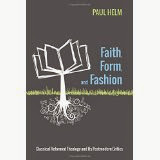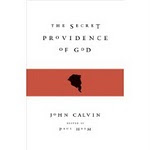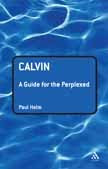We’ve been looking at ‘classical theism’ and at
some of the qualified and modified theism currently being advocated as
Christian orthodoxy. Does what we have discovered amount to a trend
or is it merely a coincidence? How many theologians does it take to make a
trend? We have not sampled what Wayne Grudem or Millard Erikson or Michael
Horton say, and a study of these theologians would certainly be relevant to answering
that question. But in the case of Rob Lister (and Bruce Ware), Scott Oliphint
and John Frame there is a remarkable convergence.
Trend
or not, it is worth asking what explains the three whose views we have looked
at to move in this direction. What is the theological motivation?
Scott Oliphint’s covenantalism
To
try to answer that question we begin with Scott Oliphint. In his case a chief
motivation is the development of a covenantalism, or a fully covenant
theology, under the motif of divine condescension, the ‘coming
down’ of God, first in creation, and then to visit and to redeem his people.
The question is, what does such condescension imply? Oliphint takes the word, I
presume, from the WCF’s chapter ‘Of God’s Covenant with Man’ (VII). A covenant
involves ‘some voluntary condescension on God’s part’. But there is no
suggestion in the Confession at this point, or elsewhere for that matter, that
such condescension requires God to adopt ‘covenantal properties’, such as the
property of being ignorant of certain things, and being changeable, in order to
execute proper covenantal condescension.
Nor
as far as I can see do standard covenant theologians,
such as Herman Witsius, take such a line, or encourage it or leave it as a
legitimate theological proposal. So the idea of covenantal properties
is an innovation. And as we saw earlier that there is not a hint of it in
Bavinck or Berkhof. My guess is that the Westminster divines and the others
mentioned would have been horrified at it, with its suggestion of a bi-polarish
God. Of course there is a sense in which this does not matter, since WCF is not
holy writ. Nor is the Reformed tradition. Nonetheless, this tradition creates a
presumption that God’s condescension is consistent with a pure theism. The
chapter on the covenant in the Confession is governed by that on the decree,
which precedes it. (III)
Covenantalism and Christology
For
Oliphint, Christology is the key because the Incarnation is the climax of
the covenant, and some of the features of incarnation may be understood of the covenant
making and keeping God more generally and apart from it. He thinks that it is
legitimate to read backwards from the fact of the Incarnation to the character
of God’s OT activity. Consider these statements:
In other words, even as Scripture
attributes both divine and human attributes to the Son of God as incarnate, so
also does it attribute essential and covenantal properties to God as
condescended. (186 - Page references are to God With Us, Crossway,
2012)
Besides God’s essential properties, those in virtue
of which he is God, we also can identify ‘covenantal properties’. God takes
these on not only in the actual economy of his covenant with Abraham, say, but
in the very act of creation.
The entire
creation is covenantal.….the fact that God interacts at all with creation
presupposes his covenantal character. Once he determines to relate to us, that
relation entails that he take on properties that he otherwise would not have
had. He limits himself while remaining the infinite God. The fact that he is
Creator means that he is now related to something ad extra to
which he was not related before. (188)
Once God
condescends, we should recognize that, in taking to himself covenantal
properties, he takes to himself as well the kind of knowledge (and will) that
accrues to those properties….one of the covenantal properties that he takes to
himself is the development of knowledge that is conducive to his interaction
with his creation generally, and specifically with his people (194)
As
a consequence Oliphint faults Aquinas and Stephen Charnock, (188-9) and
the tradition they represent, who each held that creation implies a change in
what is other than God, but not a real change in God. Not so, says Oliphint,
once God has decreed the creation that decree issues in changes in God, (indeed
the decree is itself such a change), not only in what he creates ad
extra, but through his covenantal properties. These are akin to the changes
in the life of the incarnate Logos.
Let
us consider first the character of these covenantal changes so far as they
respect God’s knowledge and then what is involved in ‘taking on’ such
properties.
God’s knowledge
Take,
for example, Oliphint's treatment of God saying of Abraham after his obedience
to sacrifice Isaac, ‘Now I know….’, (Gen.22.12) understanding that this an
expression of God’s coming to know what previously (before Abraham obeyed) he
was literally ignorant of. Being ignorant, and then learning, are according to
Oliphint, covenantal properties. We must interpret the divine affirmation in
this way, he thinks. God learns things, even though as the eternal God he is unchangeably omniscient. The two 'modes' of being God, being God timelessly eternal,
and being God in time as he takes on these novel properties, is central to the
theism of the covenant, according to the author.
Changes in the creature, changes in the Creator
We
see that Oliphint’s chief motivation is to be consistently covenantal; as part
of this, he is concerned to limit the appeal to anthropomorphism and other
language in our understanding of change in God.
For he believes it is necessary to argue, as part of his covenantal project,
that the language of change in God denotes real change. However there
is some misunderstanding at this point. In discussing he says this - 'When
Scripture speaks of the anger of the Lord, are we supposed to think that the
Lord is angry, but that we are?’ (190) To which I am
inclined to respond, ‘Of course not, whoever would think such a thing?’
To put the point baldly, for God to eternally
decree to express anger in the morning but not in the afternoon is to eternally
decree a change over time, but it does not follow that God is in time, and that
the change from the absence of anger to anger is a change in his own life. The change is a change in the course of the cosmos. Nor does it follow
from God‘s eternity that he is both eternally angry and eternally not angry. Much
less is it for us to be angry, but rather to suffer God's anger. No one has maintained
that assertions about God's anger, are about the affective states of his creatures, but that God represents
himself to us as one 'kindled', as Calvin quaintly put it.
If
the concern is over the classic view of divine simplicity and how that can
issue in diverse expressions, of divine anger and divine love, say, or anger at
one time and not at another, then the answer that Charnock and the tradition
more generally give is that in his wisdom God’s glorious essence is expressed
as intentional anger in a situation having certain features, intentional love in a
situation have other features, and so on, according to his purposes.
As the will of God for creating the world was not new, but an eternal will, though it manifested itself in time, so the will of God for the punishment of sin, or the reconciliation of the sinner, was no new will: though his wrath in time break out in the effects of it upon sinners, and his love flows out in the effects of it upon penitents. (219, 1853 edn. of Charnock's Being and Attributes)
‘Taking on’ covenant properties
Oliphint
seems to think that taking on covenant properties is possible because while
God’s eternal attributes are necessary, covenantal properties
are contingent, freely adopted. So his readers are offered a
‘covenantal hermeneutic’ which he thinks gives him the ability to handle
otherwise difficult texts. But I don’t think that distinguishing covenantal
divine attributes from eternal attributes in this way helps the logic, if the
covenantal God and the eternal God are one God, though a logical difficulty may
not trouble the author. ‘Learning’ is logically inconsistent with
being omniscient, for an omniscient being knows all things, and does and cannot
learn anything. The fact that God’s learning is contingent, 'taken on', while
being omniscient is necessary, matters not, apparently. Nevertheless, the
logical inconsistency remains: God doesn't learn and does learn. The covenantal
God is both omniscient and also a God who, in engaging with his people in
covenant, literally learns things about them as he did, in Oliphint’s
understanding, in the case of Abraham’s willingness to sacrifice Isaac. This
God, who learns in time and so changes and knows eternally, and so does not
change, is one God.
But
there is a deeper incoherence than this. Such a God is omniscient, for he is
essentially so, as Oliphint holds, yet in respect of his adoption and
employment of covenant properties he learns. What does he learn? He
learns what he already knows eternally. He learns that Abraham will be faithful
to his command, as part of his relationship with him as a ‘condescended’ God.
But as the eternal God he eternally knows what the outcome is, for he has
decreed it, and so he knows eternally what as the covenant God he first did not
know and then comes to know? Is this coherent? Does it matter if it is not?
God cannot be eternally what he was; that is, he cannot have a true eternity, if he had new knowledge, a new purpose, a new essence; if he were sometimes this and sometimes that, sometime know this and sometimes know that, sometimes purpose this and afterwards hath a new purpose; he would be partly temporary, and partly eternal, not truly and universally eternal. He that hath any thing of newness, hath not properly and truly an entire eternity. (Charnock, 211)
One
problem that remains is the status of the covenantal properties that God takes
on. Are they a new nature? That may be too much, for they obviously have
creaturely features, they are properties similar to those that creatures
possess necessarily in virtue of their creatureliness and occupancy of time and
space. A kind of forerunner of the Incarnation, God takes them on as a
set of contingent properties, not a nature but a kind of creature-like visage.
So we come to consider the place of the Incarnation in all this.
The covenantal properties and the Incarnation
Oliphint certainly intends his new proposals to be in line with Chlcedonian orthodoxy. (See 139-40) However the
comparison of the taking on of covenantal properties with the Incarnation, the
climax of the covenant, especially in its Chalcedonian formulation, which
Oliphint endorses (178-9), is not apt. The Incarnation is certainly an act of
condescension, but this principally consists in the taking on of human
nature by the Logos in a way, doubtless ineffable, by it preserving
the nature of the Logos and human nature. In Chalcedonian language....
…without
confusing…. without transmuting…. without dividing… without contrasting
them….The distinctiveness of each nature is not nullified by the union. Instead
the “properties” of each are conserved and both natures concur in one “person”
and in one hypostasis. (Leith, Creeds of the Churches, 36)
It
is the establishing of that union, and all that it implies, which is the act of
condescension. And, as far as Chalcedon is concerned, this is a union
between God in se, in the person of the Logos, and human nature,
not between Oliphint’s novel construction, a God who has taken on covenantal
properties, and human nature. It is this union between God who is unqualifiedly eternal, and human nature, that for Chalcedonian theology makes the
incarnation truly and amazingly condescending. In the person of his Son, God is
united to human nature, which is creature, with the limitations of a creature.
In respect of that nature, he does not know the future, for example: in respect
of his human nature he learns what he did not know, and remains ignorant
regarding some other matters.
So
for Oliphint, God is doubly ignorant, ignorant on account of taking on divine
covenantal properties and, in the Incarnation, ignorant on account of taking on
a truly human nature. But then there's the 'other' God, the timelessly eternal
God who knows everything, including what the 'covenantal' God does not yet know.
Yet, the two Gods are one God. Can a ship with such holes beneath the water
line make it safely to port?
Nevertheless, (to make matters even more problematic) Oliphint writes,
Because
the person of Christ is the quintessential example of God's remaining who he is
essentially, even in his interaction with creation, we would do well
to think carefully about how our understanding of Christ's person helps us
to see what is taking place throughout covenant history as God relates to his
human creatures. (182)
So Oliphint is implying that in the case of the incarnate Son it must be that he has three cognitive
conditions - as eternal God, as God who takes on covenantal properties and who
really changes in time, learning things, and as Incarnate, having as the
eternal God, a human body and mind, and so could see things - a sparrow, say - move
into left eye-shot and shortly thereafter move out of right eye-shot. Something
that neither an eternal God nor a covenantal God could ever do. Has Oliphint thought carefully enough?
The danger in proposing modifications
In
cases such as this, where a theologian proposes a serious modification to our
understanding of God as timelessly eternal, by introducing a new category, that
of a God who takes on ‘covenantal properties’, it is worth asking: if this is
how it is in respect of time, what about space? For the Mediator took up
space. Does the covenantal God have spatial properties when he speaks to Moses
at the burning bush, say? Are the expressions we routinely take to be spatially
anthropomorphic in fact (for Oliphint) literal descriptions of the covenant God?
Eliminating anthropomorphism involves thinking of God presenting a face, a
shape, and occupying multiple discrete locations. What is the hermeneutic for
these? Do his facial expressions change as his mood changes? Has anyone seen the face of the covenant God? Is Oliphint
arguing that God takes on human-like noetic properties while remaining wholly
spiritual? If so then anthropomorphic language regarding such a God would still
be necessary.
As we have seen in
number of places in God With Us Scott Oliphint invokes
Chalcedon. But has he thought through the consequences of doing
so? Has he thoroughly worked out the reading back into the doctrine of God of
the Incarnation and of ascribing covenantal properties to
God? ? Are there no unintended consequences lurking?
Next in this series will be a discussion of the John Frame
position and what motivates it theologically. Frame's
modifications to classical theism are interestingly similar to Oliphint's
outlook, and may be said to pave the way for it.









